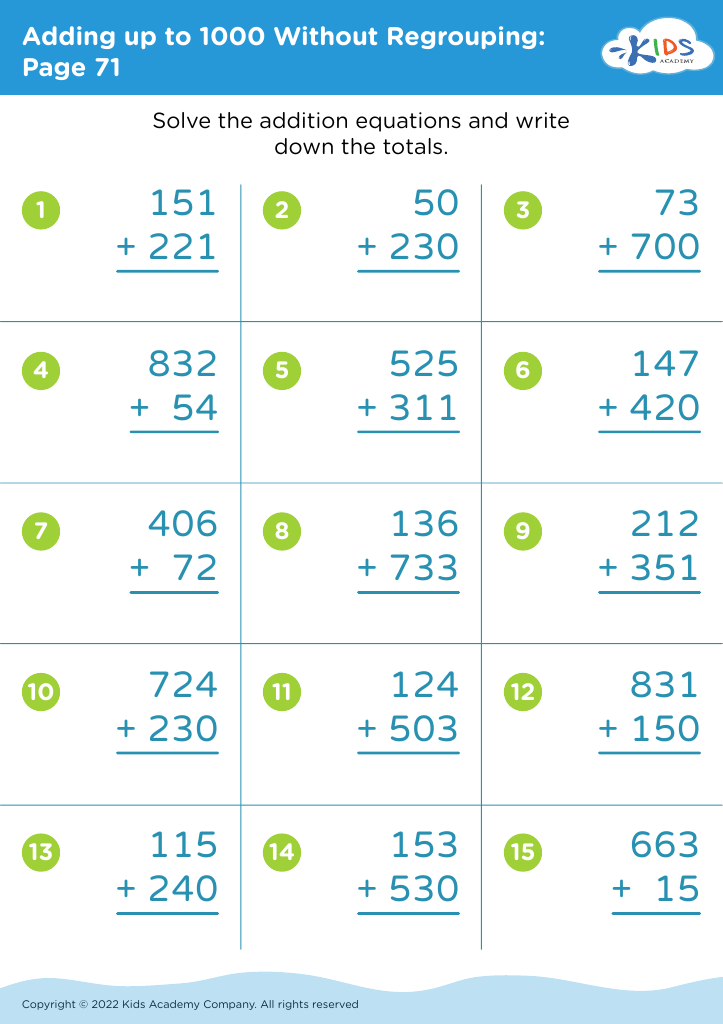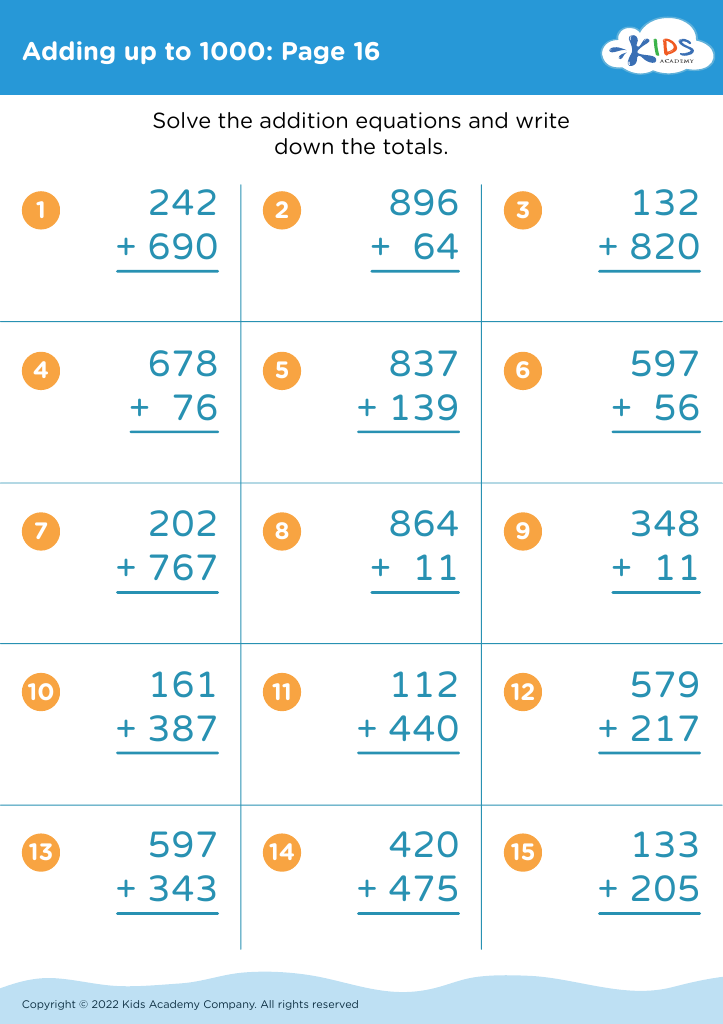Improve counting Addition Worksheets for Ages 4-8
3 filtered results
-
From - To
Welcome to our "Improve Counting Addition Worksheets" designed specifically for children ages 4-8! Our engaging worksheets help young learners enhance their counting skills while mastering basic addition concepts. These resources are perfect for reinforcing foundational mathematics through fun, hands-on activities that captivate young minds. Each worksheet features colorful illustrations and interactive exercises that make learning enjoyable. Whether at home or in the classroom, these worksheets will support your child's mathematical journey and boost their confidence in math. Explore our collection today and watch your child thrive as they improve their counting and addition skills with ease!
Improving counting and addition skills for children aged 4-8 is essential for several reasons. First, counting lays the groundwork for numeracy, which is a fundamental component of mathematics. At this stage, children can develop a strong mathematical foundation, enhancing their problem-solving and critical thinking abilities. Early mastery of counting and addition promotes confidence, encouraging children to engage with math and view it as an enjoyable subject rather than a source of stress.
Additionally, these skills are crucial for daily life activities. Children who can count and perform basic addition can handle tasks such as sharing snacks, grouping toys, or even learning to tell time. These competencies foster a sense of independence and responsibility because they can make sense of their environment through numbers.
Incorporating fun activities, like playing games or singing counting songs, can make learning enjoyable and meaningful. When parents and teachers actively support skill development in counting and addition, they help shape a child's academic trajectory, positively influencing their secondary education and lifelong learning. A strong grasp of basic math concepts sets the stage for later success in more complex mathematical concepts, ensuring that children feel capable and well-prepared for future challenges.









.jpg)









